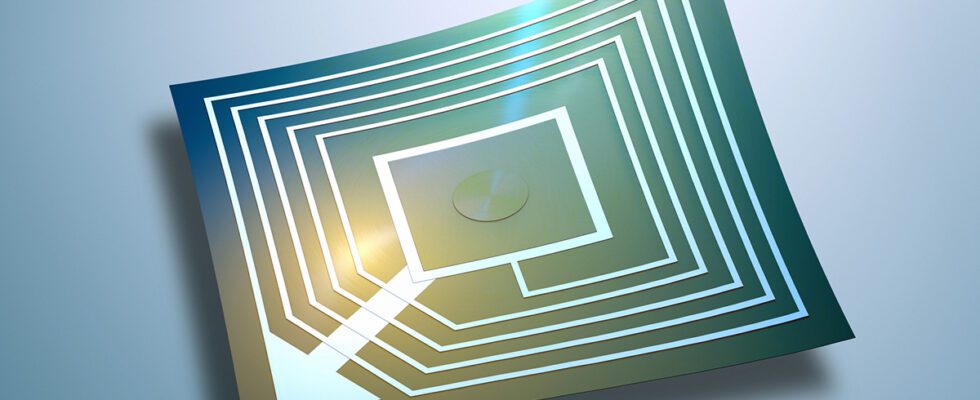Last January, RFID celebrated its 50e anniversary and may well continue to amaze! Indeed, radio frequency identification technology, or RFID for short, is remarkable for both its simplicity and versatility. Imagine being able to count thousands of items in seconds, or improving the ability to identify exactly the nature and quantity of inventory, all thanks to a reader that “activates” a tag that in turn responds to the drive. Technologies like this surround us every day.
Although basic, this communication is nevertheless very useful in all sectors of activity that need to be able to track and locate assets: retail, transport and logistics, or even healthcare to name a few.
RFID offers all sorts of benefits: better patient care, revolutionizing shopping experiences (and store management) and tremendous sustainability. This technology alone can provide complete visibility into assets and supply chains worldwide.
A brief history of RFID
Communication by electromagnetic radiation is nothing new. This is how we use our eyes to interpret the world around us. Yet the technology for commercial use was developed, in part, during World War II to address a major problem facing military forces. While they could identify approaching aircraft from a distance using radar, it was impossible to tell friend from foe until they were in sight. To remedy this problem, transmitters were attached to aircraft and when they received signals from ground radar stations, a signal was emitted back to signal the approaching aircraft as an ally. RFID works the same way.
Today, RFID continues to change history as it evolves. Standardization of data, lower cost of label production, new product development and adoption in a growing number of verticals is snowballing and changing the way everything is managed, from cacti and cannabis to facilities. of the kitchen.
What about RFID in practice?
In the heart of the breathtaking African countryside, conservationists work tirelessly to repel the onslaught of poaching. This time, it is not the rhinos or the big cats that are in danger, but the plants. Cacti are threatened with extinction by collectors and thieves motivated by greed. The implemented plant protection program uses RFID tags placed in tamper-evident boxes, attached to cacti, as well as untagged dummy boxes that serve as deterrents and expand the reach of the project. An RFID reader alerts the people in charge of protecting the cactus when a tag is not read and the cactus is considered stolen. The solution allows teams to know exactly where the cacti are.
On the other side of the ocean, in the United States, a company from Lakelanden (Florida) has been selected by the Medical Marijuana Enforcement Division (MMED) of the State of Colorado to deploy a system allowing the tracking of cultivated marijuana and purchased for medical purposes. This ground-breaking program inspired all states that have decriminalized medical marijuana with the idea of using RFID to ease the tracking of marijuana distribution and consumption.
And in Germany, RFID is used to avoid “losing” kitchens or at least mixing rooms. Nobilia delivers 2,600 custom kitchens every day and over half a million a year and also has to manage an extremely wide range of floor, wall and cabinet finishes and sizes. It is therefore crucial for the manufacturer to ensure that they send all the correct components to each buyer without error.
Fortunately, RFID has allowed Nobilia to eliminate a large part of human error. Each component is now tagged and read as it passes through the assembly line, so that production order information is automatically obtained. There are no more assembly errors, deliveries are now complete and it is possible to instantly find the cabinets in the production process. The real-time tracking capability allows better control of manufacturing sequences and knowing at all times where exactly each part is. This is a much more efficient end-to-end process.
In addition, beyond solving tricky situations related to missing items or responding to daily challenges related to inventory management, RFID and tracking solutions can change the daily life of a warehouse, but above all help organizations to increase customer satisfaction.
